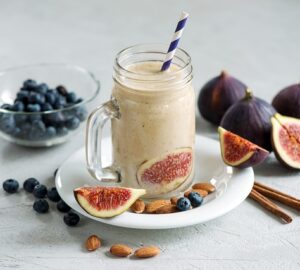Are you looking for an effective way to gain muscle mass? Then you should take a look at high-protein diets. High-protein diets provide the perfect balance of vital nutrients needed to build muscle and strength while helping you stay lean in the process.
A successful high-protein diet plan combines proper nutritional intake with consistent training regimens, making it one of the most efficient methods for gaining good results when bulking up or sculpting your physique.
Using these powerful diet tips, we will discuss how they can help increase your muscle mass rapidly. And you can also check out our short ebook on Maximizing Your Protein Intake: A Comprehensive Guide.
Understand The Protein Needs Of Your Body
Protein is a major player in keeping our bodies strong and healthy! Whether trying to build muscle or stay in fighting shape, protein deserves the spotlight. But if there’s one thing everyone should remember about getting their daily dose of this precious nutrient – everybody is different! Depending on your weight, age, and activity level, requirements for how much protein varies from person to person.
To calculate the amount of protein you should consume, you can use a simple formula based on your weight and activity level. Understanding your body’s protein needs is essential for staying healthy and maintaining an optimal diet that meets your personal goals. So, take the time to calculate your protein needs and make sure you’re getting enough of it every day.
Get Familiar With High-Protein Foods
Protein is an essential nutrient for building and repairing body tissues. It also helps in producing enzymes, hormones, and other vital molecules. If you’re looking to add more high-protein foods to your diet, you’re in luck. Eggs, fish, lean meats, nuts, and legumes are all excellent sources of this valuable nutrient.
Eating protein-rich foods like meats, eggs, and beans can do more than help you build muscle; they’re also an excellent source of vitamins and minerals that nourish your body. So if you want to stay healthy while still enjoying delicious meals — add a few extra servings of these nutrient powerhouses into your diet.
Plan Meals Around High-Protein Foods
Have you been struggling to get enough protein into your meals? Then let us help. Protein is an essential component of a balanced diet, and it doesn’t have to be boring or complicated – in fact, it can even taste delicious! Make sure you’re getting 30-40g per meal if you want to meet the daily recommended amount and feel satisfied all day long.
Get creative with ingredients like grilled chicken or tofu, quinoa, Greek yogurt, eggs, and nuts. Add some flavor with herbs and spices, and don’t forget to incorporate plenty of vegetables to round out your plate. With a little planning and creativity, you’ll be well on your way to enjoying tasty and satisfying meals that also happen to be nutritious.
Make Dietary Changes Gradually
We all know how tempting it can be to drastically switch up our diets, but when we make diet changes too quickly and without proper preparation, it could end in disastrous results. Our bodies take time to adapt to new dietary habits – so instead of diving headfirst into a high-protein regime right away, maybe try taking small steps.
Taking it slow is the way to go when making dietary changes. A sudden switch-up in your eating routine could shock your system, so instead of changing everything at once, it’s best to do what you can over time for optimal results and long-term sustainability! Gradual adjustments will help ease you into a high-protein diet without any adverse effects – giving both your body and mind something to celebrate!
Add Some Healthy Fats To Your Diet
Incorporating healthy fats into your diet isn’t just important for maintaining overall health, but it can also be especially beneficial for those trying to bulk up. Avocado, olive oil, and nut butter are just a few examples of healthy fats that can help boost energy levels and support muscle growth.
Not only do these healthy fats provide the body with essential nutrients, but they also help keep you feeling full and satisfied throughout the day. So whether you’re trying to gain muscle or just looking to improve your overall health, adding healthy fats to your diet is a great place to start.
Drink Plenty Of Water
Staying hydrated is crucial, especially if you’re trying to grow your muscles. Drinking plenty of water helps to transport essential nutrients and oxygen to the muscles, allowing them to recover and rebuild faster. Water also helps to regulate body temperature and lubricate joints, which are both critical components to a successful workout.
Plus, staying hydrated can improve your overall energy levels and focus, helping you push through even the toughest of workouts. So, make sure to fill up your water bottle before hitting the gym, and aim to drink at least eight glasses of water per day to reap all the benefits of staying hydrated.
Examples Of High Protein Diets To Include In Your Meals To Gain Muscle Mass
If you’re looking to build muscle mass, incorporating high-protein diets into your meals is an essential component of your nutrition plan. Foods like lean meats, eggs, dairy products, and legumes are excellent options for protein sources. Grilled chicken or fish, steamed or boiled eggs, and cottage cheese with fruit are great choices for breakfast.
At lunch and dinner, aim to consume larger portions of protein-rich foods like turkey, lean beef, or roasted pork with vegetables. Don’t forget to include plant-based protein sources like lentils, tofu, or chickpeas for a healthy and balanced meal. It’s essential to keep in mind that while protein is vital for muscle growth, you should still aim to consume a well-rounded diet that includes a variety of nutrient-dense foods for optimal health.
In Conclusion
As we can see, for anyone looking to build muscle mass, the key is to understand your body’s protein needs and then plan meals around those needs. Start by calculating how many grams of protein you need daily based on your weight and activity level, and then get familiar with high-protein foods like eggs, fish, lean meats, nuts, and legumes. Disperse 30-40g of protein throughout meals each day until you reach your macros goals.
Additionally, add some healthy fats, as this will help boost your energy levels while bulking up, and drink plenty of water. These strategies are essential to building a strong foundation for bulking up that is sustainable in the long term.




